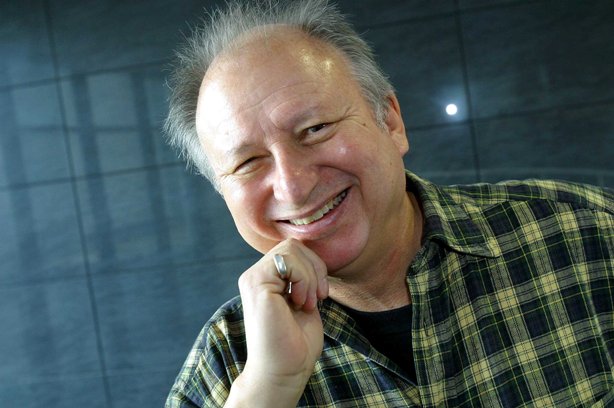
A guest post from Ed Hooks, who has kindly permitted Midnight East to republish this article from his newletter:
A PREFACE TO THIS MONTH’S CRAFT NOTES
It is essential that animators as well as stage actors understand the fundamental distinction between “empathy” and “sympathy”. The goal for an actor or animator is to create a sense of empathy for his character. Part of the problem is that, for many early years in the entertainment industry, the word “empathy” did not even exist. Even a genius like Charlie Chaplin talked about “sympathy” when what he meant was “empathy” — there was simply not a word for it until the 1920’s.
If you set out to create sympathy for your character, you are on a risky path. As you will read in the following notes, it is okay for an audience to feel sympathy for a character — but not exclusively and not for long. If you do not generate empathy, you will lose your audience. Guaranteed, take it to the bank.
Part of the problem in animation springs from an erroneous idea of what strong performance is in the first place. Too many animation directors think that if a character can show emotion, that is good performance. Actually, emotion by itself has zero theatrical currency. This is true for all theatrical forms, stage, film, live action and animation. Emotion is the point of empathy for the audience, but emotion tends to lead to action. If you don’t have action, you have nothing. The idea is to have the character play an action in pursuit of a provable objective while overcoming an obstacle. The audience sees the character doing that and empathizes with the emotion behind it.
Each month I write two newsletters. The Ed Hooks Newsletter is geared to stage actors, and this one is geared to animators. It is rare that I share the same craft notes with both but, in this instance, it is justified. And so, read on….
SYMPATHY VS. EMPATHY AGAIN
David Brooks, a Pulitzer Prize winning New York Times political columnist, headlined his March 16th column “The Spirit of Sympathy”. What drew my attention was not his political views, but the way he misused that word “sympathy”. Take a look at the second paragraph from the article.
“To help us in this social world, God, nature and culture have equipped us with a spirit of sympathy. We instinctively feel a tinge of pain when we observe another in pain (at least most of us do). We instinctively mimic, even to a small extent, the mood, manners, yawns and actions of the people around us.”
The innate attribute Mr. Brooks is describing is empathy, not sympathy. Sympathy is when you feel sorry for somebody, and it may or may not be accompanied by empathy. Empathy is when you identify with another person’s feeling, recognizing that same feeling in yourself. The word “empathy”, which was coined in the 1920’s, literally means “feeling into”; “sympathy”, which has been in use much longer, literally means “feeling for”. Confusing the two is not a benign mistake for someone who makes a living by stringing words together, like David Brooks.
An understanding of the distinction between empathy and sympathy is intrinsic and essential to my personal approach to acting and acting training. An actor’s job is to create in the audience a sense of empathy with the character she is portraying. Yes, of course there are times when an audience will feel sympathy, but if sympathy is what they feel at the final curtain, they’re not going to be satisfied. Theatre, at its root, is a shamanistic activity, similar in purpose to organized religions. Both theatre and religion aim to help the tribe stay together through hard times and good, so that its members will survive into the next generation. We humans are bound together by our effort to survive, and it has been that way throughout history.
Empathy is an essential attribute for human survival, and terrible things happen in its absence. Serial killers – sociopaths – for example, do not empathize with their victims. Studies have shown that the part of a sociopath’s brain associated with empathy is literally broken. That is why he can murder a person and then stop off for a burger and beer on the way home. And then there is Hitler. There are smart and responsible leaders in the Jewish community who become outraged at any attempt a performer makes to create empathy for Hitler. Yes, the man was evil and did horrible things but, if we do not try to understand where he was erroneously coming from emotionally, then we open ourselves to the unwitting acceptance of another just like him.
Not long ago, I asked a beginning actor in my workshop how he felt about the character he was rehearsing. “I don’t like him. He does stupid things,” he replied. A judgment like that is fair enough, and the actor is entitled to it. However, as I quickly advised him, he would have to find a way to love and empathize with that character if he wanted a successful portrayal. Every person on earth and in literature is a hero in his or her own life, even the stupid ones. Humans are fallible. We can make bad choices, and that is the reason we have theatre in the first place. If humans were instinctual like lions and tigers, there would not be an option for acting against our own survival and best interest. When an actor plays a character, she is saying to the audience, in effect, “This is how I personally think this character is surviving in the world.” When the audience laughs, cries and applauds, it is saying, in effect, “I see what you mean. I never looked at it that way before.”
We all have different strategies, but we are all trying to survive. Each of us is part of a tribe that is, in turn, part of a larger global tribe. We universally empathize only with emotion, never with thinking, and we empathize with all seven of them – happy, fear, anger, contempt, disgust, surprise and, yes, sad. I visited China for the first time last year and saw immediately that the Chinese culture encourages radically different survival strategies than the ones I personally pursue. It doesn’t matter because we are all humans, and we are all marching in the same direction.
We humans now possess the power to destroy one another along with the planet we live on. If our many tribes manage to survive, it will be because the members of each tribe have learned to empathize with the members of other tribes, not sympathize. With all due respect, I will now send this column to David Brooks.
Until next month …
Ed Hooks
How does empathy work in the brain? Check out Shani Waidergoren’s article on A Brain Network of Empathy.
A professional actor whose television and film credits include “Murder, She Wrote”, “Days of Our Lives”, “Full House”, “Golden Girls”, “Knight Rider”, “The Fall Guy”, “Striking Distance”, “Raising Cain” and “Heart and Souls”, Ed Hooks is the author of several books on acting. In addition to his regular acting classes, he teaches acting to animators and writes monthly newsletters for actors and animators.






Comments are closed.